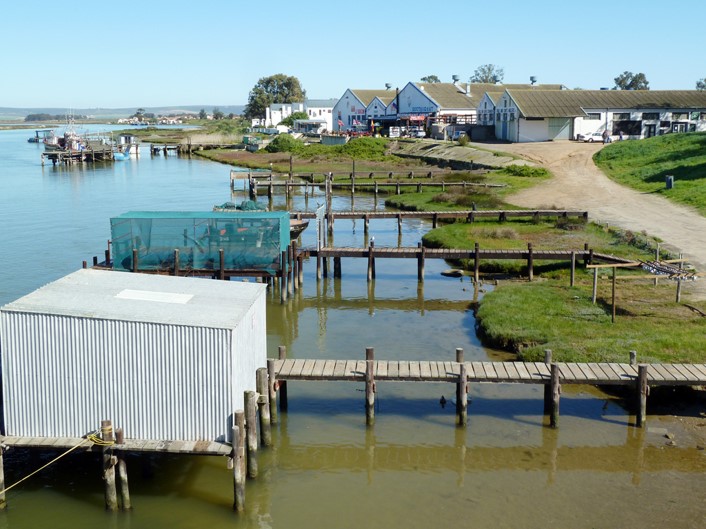| Jump to: Objectives |

The ACDI's Berg River Climate Knowledge Network (CKN) brought together a network of academics, practitioners and civil society members working within the ambit of the Bergrivier Municipality, to facilitate knowledge sharing, relationship building and applied interdisciplinary research. The CKN was born in 2012, with an original group of 23 members, comprising of academics across various departments at the University of Cape Town, those working in both local and provincial government, and various civil society and industry representatives. The groups’ initial focus was on the Bergrivier Local Municipality, situated in the greater West Coast District in the Western Cape.
Bergrivier Municipality is situated in the West Coast District of the Western Cape Province. The Municipality is bordered to the North by the Cederberg Municipality, to the West by the Saldanha Bay Municipality, to the South by Swartland Municipality and to the East by the Drakenstein and Witzenberg Municipalities. The Municipality covers a geographic area of approximately 4407.04 km² and is geographically diverse. It includes nine urban settlements, approximately 40km of coastline and a vast rural area. The main urban settlements that constitute the Municipality are: Piketberg which is the administrative seat, Porterville, Velddrif (which includes Port Owen, Laaiplek and Noordhoek), Dwarskersbos, Eendekuil, Aurora, Redelinghuys, Goedverwacht and Wittewater. The latter two are Moravian settlements on private land.
Climate change, and specifically the challenge of building resilience and increasing adaptive capacity, is not unique to, but very pertinent within, the Bergrivier Municipality. It is widely acknowledged that the “wicked” problem of climate change is one that necessitates cooperative investigation and action, hence the numerous perspectives and disciplinary backgrounds involved in the formative stages of the CKN. As the group initially came together to take the first steps in an interdisciplinary enquiry, time was taken through careful and skillful facilitation to develop trust and respect between members of the group. Early network activities included network meetings, site visits and learning journeys. Different members of the group were encouraged to walk in each other’s ‘disciplinary shoes’ and see the Bergrivier from the various perspectives represented.
As the group grew and evolved it become clear that whilst the Bergrivier Municipality was an ideal starting point for focusing the groups’ energy, attention and action in the formative stages, the groups’ area of enquiry should extend beyond the Bergrivier Municipality to the larger West Coast District. The various current activity threads of the groups (including PhD and Masters student research scholarships, reading groups, supervision of various students working within the West Coast District, seminars and engagement with local communities on pressing needs) are vehicles for both sharing and co-producing knowledge. The CKN also provides a safe space for personal growth and development as the individuals in the network to begin to explore what it means to truly work in an interdisciplinary space.
Objectives
- Build a inter/transdisciplinary (ID/TD) knowledge network
- Bring diverse “academics” and “practitioners” together to help advance understanding of climate & development issues in Bergrivier municipal area
- Develop projects that enhance appropriate climate change responses and resilience in the Bergrivier municipal area
- Enhance interdisciplinary collaboration across UCT
- Explore the advantages, disadvantages of an interdisciplinary approach to CC
- Support UCT “research-into-practice” agenda
- Develop interesting, problem-oriented research projects
- Cutting-edge publications